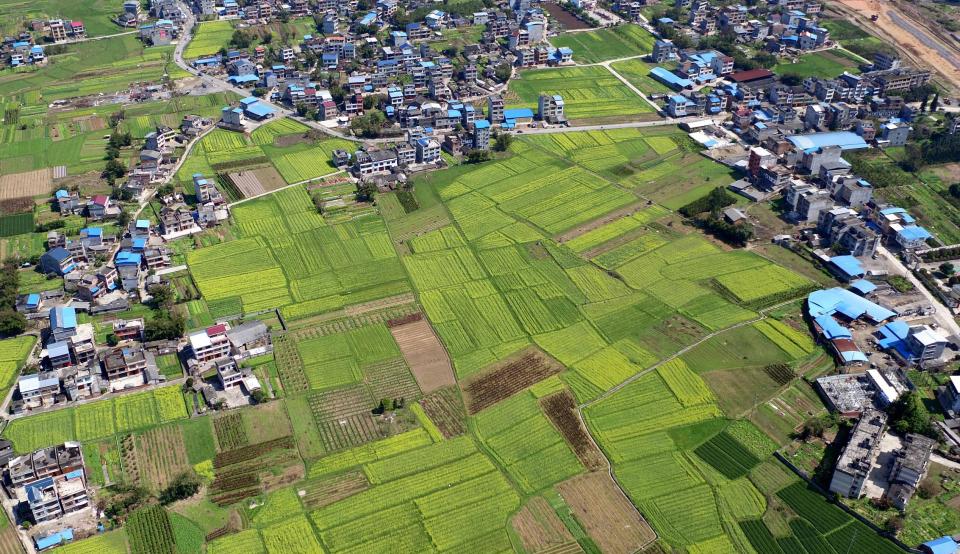'Rural revitalization' took center stage at last year’s 19th National Congress of the Communist Party of China. Now, China's Premier Li Keqiang, in this year’s government work report, says the country will implement a strategy to improve urban-rural integrative development. Despite strong government support, rural revitalization faces various challenges,
yicai.com reports.
For Li Chenggui, president of Beijing Academy of Agriculture and Forestry Sciences, the top priority is to speed up reforms to rural collective property rights – especially rural land reform. Li says land is the key to urban-rural integrative development, and the Chinese government needs to give farmers more autonomy over it. Under the current system of collective ownership, farmers cannot even sell the land they till.
People are another significant aspect of rural revitalization, says Song Fengqiang, chairman of the board of Henan-based Green Central Plains Modern Agriculture Group. The country should explore new avenues to train modern professional farmers. Colleges, the government and students could sign a directed training and employment agreement. Education and training should be aligned with social needs, he says.
Rural reform will see new businesses and market players emerge, and allow “dormant assets” to be marketed, Dou Rongxin, president of Zhongyuan Bank, tells yicai.com. Financial institutions should seize the opportunity to create products tailored to the countryside, improve the rural financial system, and expand financial services for farmers, agriculture and rural China, Dou says.

 Old Version
Old Version